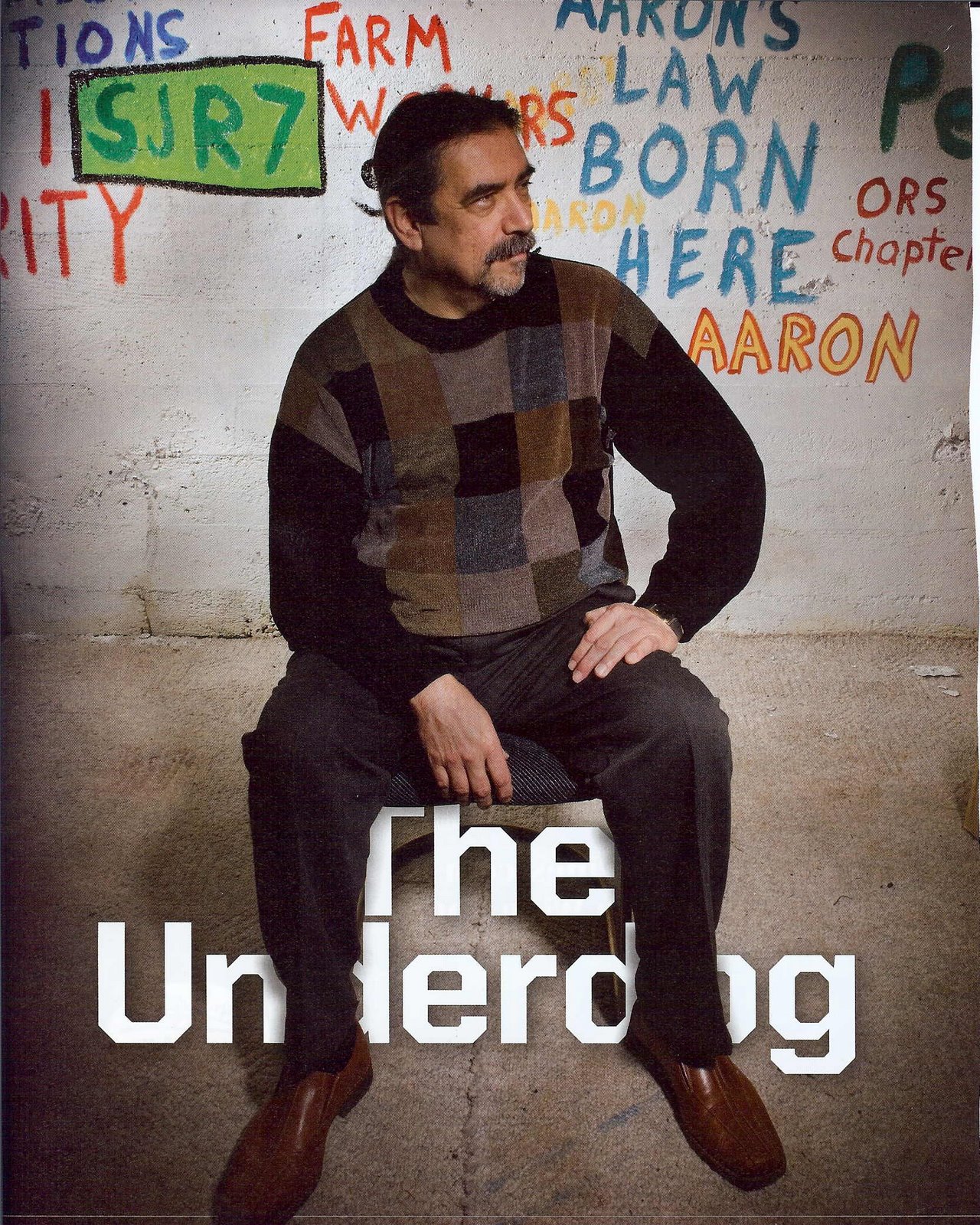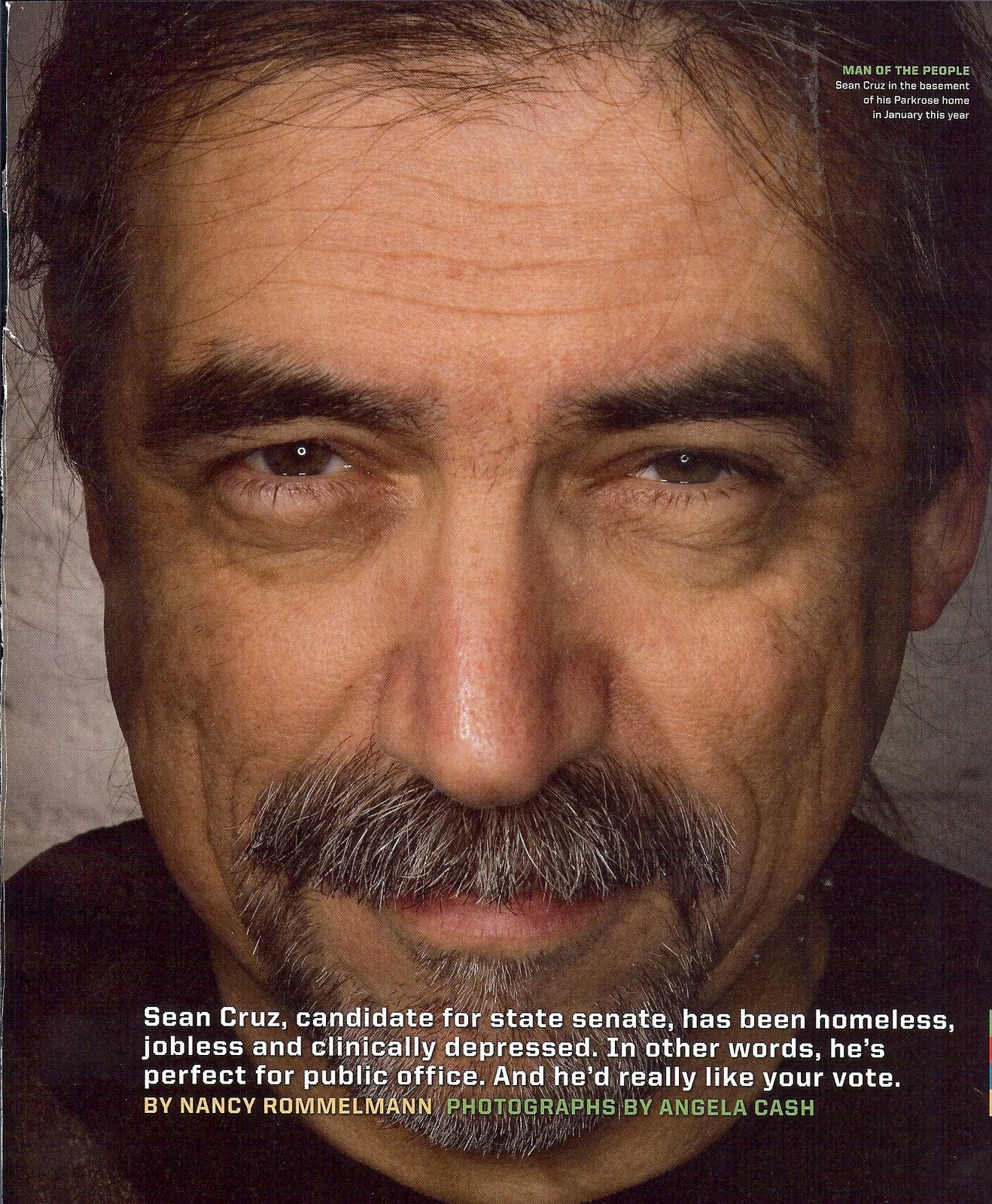By Sean Cruz
Portland, Oregon—
The candidacies of Mormons Mitt Romney and John Huntsman have put the issue of religion on the Presidential debate stage, which is where it belongs.
The President is the nation’s Decider-in-Chief.
We should be concerned with all of the factors that will influence the future President’s decision-making. When the candidates identify a particular school of thought, worldview, religion or set of beliefs as central to their lives, then the public should vet those aspects. This is no place to grant a candidate a pass.
It’s one thing to have faith in a given creation story or adhere to a given religious tradition. It’s another thing entirely, however, to believe that the Earth is 6,000 years old, or that a person rapped a stick on a rock and the sea actually parted, or a story about golden plates, the Lost-Tribe-of-Israel origins of Native Americans and real rocking, talking angels. Do we want a Commander-in-Chief who is convinced that any of this is factual?
If the next Decider-in-Chief has crazy beliefs in his or her head, we need to know about it. Does the candidate believe that God drawls in his or her ear? Like George W. Bush? Have we forgotten how that worked out already?
(sound track: The Who: “Won’t Get Fooled Again!” is playing right here)
I don’t much care what church they do or do not go to, but I do want to know--long before election night, long before the anointed one ascends—if they are spending way too much time in an imaginary world, measured in cubits. That’s not the problem-solver I want to see in the Oval Office.
The Mormon church is powerful, enormously wealthy, highly secretive, and amounts to about 3% of the US population. These are well-established facts that have nothing to do with the theology of the sect or its relationship to Christian points of view, or with the First Amendment, for that matter.
Mormonism is controversial for many reasons, not just whether it meets the dictionary definition of a cult or is a bizarre form of polytheistic Christianity, or for its polygamist and officially racist recent past.
One of those reasons is the Mormon practice of shunning, and how Mormon shunnings are enforced, which speaks to how the Mormon Church operates as if it were a cult. That’s a different issue altogether, and should be part of the discussion.
Another issue is the position of women in the Mormon Church and in the Mormon worldview. All of the higher positions in the church organization are reserved for men only. Mormon women belong in the home, not the workplace. Mormon women and girls are expected to be subservient to men, and are trained to be “meek and mild” as part of everyday practice.
I would never vote for a candidate that held this set of beliefs, not for any public office.
One of the issues that stood between me and unwelcome Mormonism in my family story was the status of its women and girls. I did not want my daughters to grow up believing that their roles were to be subservient to men, or my sons to believe that either.
If your child marries into the Mormon church, you can say goodbye to any plans you ever had to see your child’s wedding. You will be forbidden participation, an outsider to one of the most important events in your life. That is official Mormon policy, and it is enforced without exception. Voters need to be clear on this.
The Mormon notion of the family unit and the church’s willingness to sever families based on their membership status or fidelity to hard core Mormonism should be part of this public policy discussion, as the candidates debate their notions of family values, an essential component of each of their platforms.
My four children disappeared into Utah in a Mormon abduction more than 15 years ago. This is the story of a Mormon shunning.
Mormon officials in three states conspired to abduct and conceal my kids in a series of remote Mormon enclaves in order to immerse them in a completely Mormon environment, despite an order for joint custody. And they got what they wanted, too, although it cost the happiness and then the life of my son Aaron.
Oregon's landmark 2005 kidnapping law is named "Aaron's Law" after my late son Aaron Cruz, who died in Payson, Utah from long-term medical neglect, emotional abuse and abandonment. Aarons Law (Senate Bill 1041) is designed to remedy several common failures of the criminal and family law systems in preventing and resolving cases of child abduction.
Aarons Law provides abduction victims tools to hold their abductors, and those who provide financial, planning or logistical support to the abduction, accountable financially, including religious organizations that engage in shunning, like the Mormons, like the Mormons who abducted my children.
With Aaron’s Law, Oregon is the only state in the nation where the abduction of a child creates a civil cause of action. The law recognizes that the abduction of a child by any person is child abuse, as serious as any other form of abuse.
The provisions of Aaron’s Law arise from the failures of both the criminal and family law systems in the interstate kidnapping and concealment of my children, but these failures are commonplace, with more than 200,000 cases of parental and family abduction taking place in the United States each year, and increasing numbers of children disappearing into foreign countries forever.
Personally, I’m glad Romney’s in the race. The more people understand the ins and outs of Mormonism, the more will reject it. Bring it on, Mitt! You too, Mr. Huntsman. I didn’t buy the story about the golden plates, so your church destroyed my family. Now let’s talk about who you hypocrites really are.
Every candidate for public office has the right to believe whatever he or she believes, to belong or not belong to any religious organization. That is guaranteed by the First Amendment.
But the public does have a legitimate right to know the specifics of those beliefs, and to vote accordingly with a complete set of facts.
There is far too much at stake in the election of a President to give the candidates a pass on such a fundamental part of their character and how they view the world, particularly since they express such strong feelings about it. Let's talk it all out. There's plenty of time. I've waited for 15 years.
Friday, October 21, 2011
Monday, October 10, 2011
On Mitt Romney and the Mormonism controversy
by Sean Cruz
Portland, Oregon--
My four children disappeared into Utah in a Mormon abduction more than 15 years ago.
Mormon officials in three states conspired to abduct and conceal my kids in a series of remote Mormon enclaves in order to immerse them in a completely Mormon environment, despite an order for joint custody.
Oregon's landmark 2005 kidnapping law is named "Aaron's Law" after my late son Aaron Cruz, who died in Payson, Utah. Aarons Law is designed to remedy several common failures of the criminal and family law systems in preventing and resolving cases of child abduction.
Mormons divide the world into "Members" (Mormons) and "Non-Members" (everybody else), and they carry a huge thin-skinned “Us vs Them” persecution complex that influences their relationships with non-members unlike any mainstream religion in America.
Mormonism’s essential tenets put it at odds with every branch of Christianity on the planet, along with the Mormon doctrine that every other church or belief system is fundamentally evil.
If your child marries into the Mormon church, you can say goodbye to any plans you ever had to see your child’s wedding. The Mormon notion of the family unit and their willingness to sever families based on their membership status should be part of this public policy discussion.
Personally, I’m glad Romney’s in the race. The more people understand the ins and outs of Mormonism, the more will reject it. Bring it on, Mitt!
Portland, Oregon--
My four children disappeared into Utah in a Mormon abduction more than 15 years ago.
Mormon officials in three states conspired to abduct and conceal my kids in a series of remote Mormon enclaves in order to immerse them in a completely Mormon environment, despite an order for joint custody.
Oregon's landmark 2005 kidnapping law is named "Aaron's Law" after my late son Aaron Cruz, who died in Payson, Utah. Aarons Law is designed to remedy several common failures of the criminal and family law systems in preventing and resolving cases of child abduction.
Mormons divide the world into "Members" (Mormons) and "Non-Members" (everybody else), and they carry a huge thin-skinned “Us vs Them” persecution complex that influences their relationships with non-members unlike any mainstream religion in America.
Mormonism’s essential tenets put it at odds with every branch of Christianity on the planet, along with the Mormon doctrine that every other church or belief system is fundamentally evil.
If your child marries into the Mormon church, you can say goodbye to any plans you ever had to see your child’s wedding. The Mormon notion of the family unit and their willingness to sever families based on their membership status should be part of this public policy discussion.
Personally, I’m glad Romney’s in the race. The more people understand the ins and outs of Mormonism, the more will reject it. Bring it on, Mitt!
Subscribe to:
Comments (Atom)





